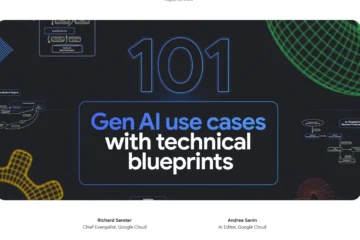Categories
Description
WhatTheDiff: Revolutionize Your Code Reviews with AI Automation
WhatTheDiff is a cutting-edge AI-powered platform designed to transform the developer workflow by automating crucial aspects of the code review process. It excels at generating descriptive pull request (PR) descriptions, creating concise summaries, and providing intelligent inline refactoring suggestions. By streamlining these tasks, WhatTheDiff significantly boosts efficiency, enhances team communication, and simplifies complex development cycles for software teams of all sizes.
Automate Pull Request Descriptions and Summaries
Eliminate the manual effort involved in writing detailed pull request descriptions. WhatTheDiff intelligently analyzes code changes to generate accurate and informative PR descriptions, freeing up developers to concentrate on writing code. It also provides simplified, translated pull request summaries, ensuring all stakeholders, technical or non-technical, stay informed with minimal effort.
Key Features That Boost Productivity
- Automated PR Descriptions: Save time by letting AI generate detailed descriptions for your pull requests.
- AI-Generated Summaries: Keep your team informed with clear, concise, and translated summaries of code changes.
- Inline Refactoring Suggestions: Receive intelligent, context-aware recommendations for code improvements directly within your review interface.
- Beautiful Changelogs: Maintain transparency with a public changelog, accessible via a JSON API for easy tracking.
- Weekly Progress Reports: Get comprehensive overviews of the week’s changes for better project management.
Benefits of Integrating WhatTheDiff
- Boost Developer Efficiency: Significantly reduces time spent on documentation and administrative tasks.
- Enhance Team Communication: Ensures everyone is aligned with clear, easily digestible updates.
- Broad Compatibility: Seamlessly integrates with GitHub and GitLab and supports nearly all programming languages.
- Focus on Security: Prioritizes data privacy by not storing your code.
Considerations for Users
- Token Management: May require frequent token replenishment depending on project activity.
- Repository Access: Needs full access to code repositories, which may raise privacy concerns for some.
- No Token Rollover: Unused tokens expire monthly, potentially leading to resource inefficiency.
Who Benefits from WhatTheDiff?
- Software Development Teams: Optimize large-scale project workflows.
- Project Managers: Easily track progress and changes.
- QA Professionals: Ensure code quality before approval.
- Educational Institutions: Teach version control best practices.
- Startups & Non-profits: Maintain lean and efficient operations.
Pricing & Plans
- Free Tier: Get started with limited access to features and tokens.
- Paid Plans: Access advanced features and increased token limits, with options for various team sizes and needs.
- *Visit the official WhatTheDiff site for the latest pricing details.
What Sets WhatTheDiff Apart?
WhatTheDiff distinguishes itself by combining automated PR description generation with proactive inline AI refactoring suggestions, offering a dual-action solution for optimizing code quality and development speed.
Integrations and Compatibility
- GitHub & GitLab: Direct integration with major code hosting platforms.
- Multi-Language Support: Works with virtually any programming language.
- API Access: Enables custom integrations and extensions.
WhatTheDiff Summary: An Essential AI Tool
WhatTheDiff is an indispensable AI tool for modern software teams, significantly enhancing code review efficiency and transparency through automation and intelligent suggestions, particularly its unique inline refactoring capabilities.
Proaitools Rating: WhatTheDiff
We evaluate AI tools based on several key metrics:
- Accuracy and Reliability: 3.5/5
- Ease of Use: 3.7/5
- Functionality and Features: 4.2/5
- Performance and Speed: 3.7/5
- Customization and Flexibility: 4.1/5
- Data Privacy and Security: 3.9/5
- Support and Resources: 4.2/5
- Cost-Efficiency: 3.9/5
- Integration Capabilities: 4.3/5
- Overall Score: 3.94/5








